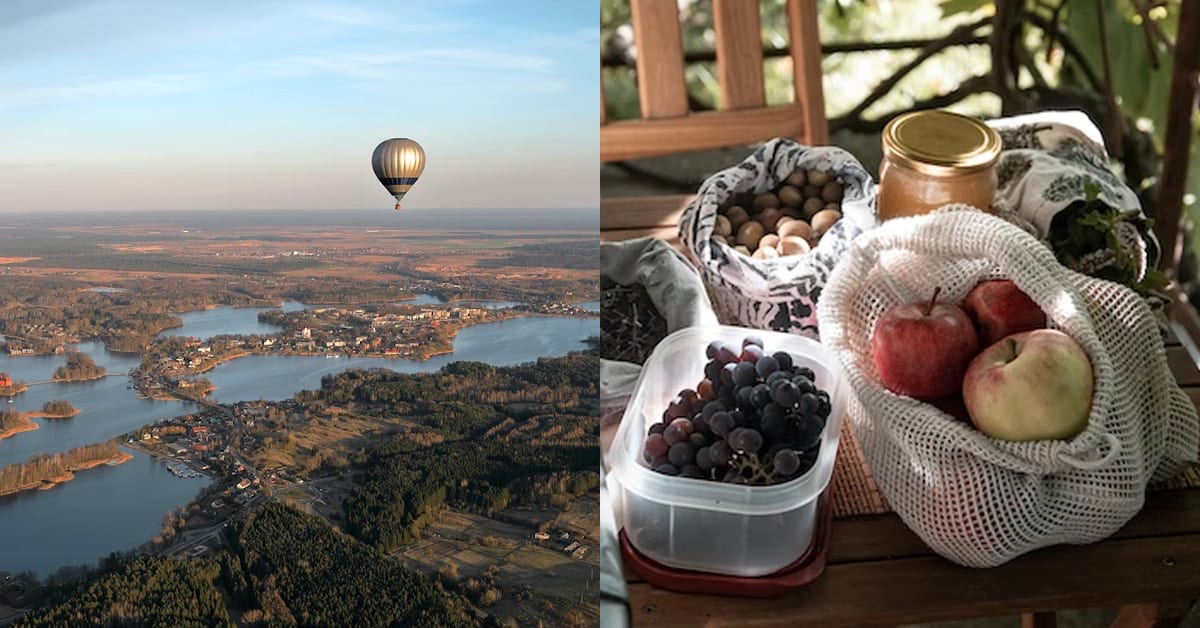Lithuanian cuisine is a reflection of the country’s rich history and cultural diversity. Located in the heart of Europe, Lithuania has been influenced by neighboring countries such as Poland, Russia, and Germany, as well as its own unique traditions.
Lithuanian food is known for its hearty and filling dishes, often featuring potatoes, meat, and dairy products. Traditional Lithuanian cuisine is also characterized by its use of local ingredients, such as wild mushrooms, berries, and herbs.
Lithuanian cuisine halal or not?
Is Lithuanian food halal?
Lithuanian cuisine is not typically halal as it includes pork and other non-halal meats. However, there are some dishes that can be made halal by substituting the meat with halal alternatives.
It is important to check the ingredients and preparation methods before consuming any Lithuanian dish to ensure it is halal.
What kind of food do Lithuanian eat?
Lithuanian cuisine is known for its hearty and filling dishes, often featuring potatoes, meat, and dairy products. Some popular Lithuanian dishes include:
- Cepelinai: potato dumplings stuffed with meat or cheese and served with sour cream and bacon
- Kugelis: a potato pudding made with grated potatoes, eggs, milk, and bacon
- Šaltibarščiai: a cold beet soup served with boiled potatoes and sour cream
- Koldūnai: small dumplings filled with meat or mushrooms and served with sour cream
- Vėdarai: stuffed pig intestines with potatoes and onions
- Skilandis: a smoked meat sausage made from pork and garlic
- Šakotis: a traditional Lithuanian cake made by pouring batter over a rotating spit and baking it over an open flame.
Lithuanians also enjoy bread, cheese, and various pickled vegetables as part of their cuisine. Beer is a popular beverage in Lithuania, and the country is known for its many microbreweries.
How can you tell if the food is halal in Lithuania?
In Lithuania, halal food is not widely available, and it may be challenging to find halal-certified restaurants or food products.
However, some supermarkets and restaurants may offer halal food, and it is recommended to inquire about the halal certification or ingredients used in the food preparation.
Some Muslim communities in Lithuania may have their own halal food suppliers or restaurants, and it may be helpful to reach out to them for recommendations.
Is it hard to find halal food in Lithuania?
It may be challenging to find halal food in Lithuania, especially outside of major cities like Vilnius. However, some restaurants and grocery stores in Vilnius and Kaunas offer halal options. It is recommended to do research and ask locals for recommendations.
Is Lithuanian food healthy?
Lithuanian cuisine is known for its hearty and filling dishes, often featuring meat, potatoes, and dairy products.
While some traditional Lithuanian dishes may be high in calories and fat, there are also many healthy options available, such as vegetable soups, grilled fish, and salads. As with any cuisine, it is possible to make healthy choices when dining in Lithuania.
What is Lithuanian food similar to?
Lithuanian food is similar to other Eastern European cuisines, such as Polish, Russian, and Ukrainian. It also shares some similarities with German and Scandinavian cuisine due to its location and historical influences.
Some popular Lithuanian dishes include cepelinai (potato dumplings stuffed with meat or cheese), kugelis (potato pudding), šaltibarščiai (cold beet soup), and koldūnai (meat-filled dumplings).
Steps to find halal food in Lithuania
Here are some tips to find halal food in Lithuania:
- Research halal food options in Lithuania: Start by researching halal food options in Lithuania. You can use search engines, social media, and online directories to find halal restaurants, grocery stores, and markets.
- Check for halal certification: Once you have identified halal food options, check if they have halal certification. Halal certification ensures that the food is prepared according to Islamic dietary laws.
- Ask for recommendations: Ask for recommendations from friends, family, or local Muslim communities. They may have suggestions for halal food options in Lithuania.
- Read food labels: When shopping for halal food, read the food labels carefully. Look for ingredients that are halal certified and avoid those that are not.
- Contact the restaurant or store: If you are unsure about the halal status of a restaurant or store, contact them directly and ask about their halal certification and food preparation methods.
- Use halal food apps: There are several halal food apps available that can help you find halal food options in Lithuania. These apps provide information on halal restaurants, grocery stores, and markets.
- Visit halal food festivals: Halal food festivals are a great way to discover new halal food options in Lithuania. These festivals bring together halal food vendors from different parts of the country, providing a wide range of halal food options.

